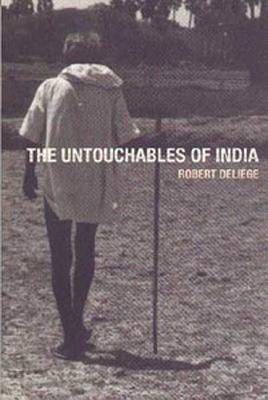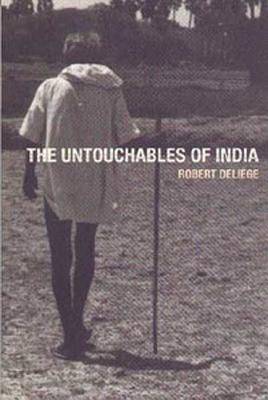
Bedankt voor het vertrouwen het afgelopen jaar! Om jou te bedanken bieden we GRATIS verzending (in België) aan op alles gedurende de hele maand januari.
- Afhalen na 1 uur in een winkel met voorraad
- In januari gratis thuislevering in België
- Ruim aanbod met 7 miljoen producten
Bedankt voor het vertrouwen het afgelopen jaar! Om jou te bedanken bieden we GRATIS verzending (in België) aan op alles gedurende de hele maand januari.
- Afhalen na 1 uur in een winkel met voorraad
- In januari gratis thuislevering in België
- Ruim aanbod met 7 miljoen producten
Zoeken
Omschrijving
Translated from the French by Nora Scott The subjugation of millions of people in a caste system that is a radical form of apartheid has long had its critics, both from within India and from outside it. Although the government has introduced equal opportunity legislation in an effort to right some of history's wrongs, untouchability is an accident of birth that continues to stigmatize and ostracize more than one hundred and forty million people. Untouchables remain on the bottom of the socioeconomic scale and are found, more often than not, in unskilled, low status occupations. They are forbidden to enter temples, often beg for their food, must leave their chests uncovered and silently endure public humiliations and insults. They remain on the fringes of society and it is even said by some that their shadows pollute passersby. This excellent book addresses the problem of untouchability by providing an overview of the subject as well as penetrating insights into its social and religious origins. The author persuasively demonstrates that untouchability is a deeply ambiguous condition: neither inside nor outside society, reviled yet indispensable, untouchables constitute an original category of social exclusion. This is reflected in the various social movements they have led over the last century and more. The situation of untouchables is crucial to the understanding of caste dynamics, especially in contemporary circumstances, but emphasis, particularly within anthropology, has been placed on the dominant aspects of the caste system rather than on those marginalized and excluded from it. This important book redresses this problem and represents a vital contribution to studies of India, Hinduism, human rights, history, sociology and anthropology.
Specificaties
Betrokkenen
- Auteur(s):
- Vertaler(s):
- Uitgeverij:
Inhoud
- Aantal bladzijden:
- 244
- Taal:
- Engels
- Reeks:
Eigenschappen
- Productcode (EAN):
- 9781859732144
- Verschijningsdatum:
- 1/02/2001
- Uitvoering:
- Paperback
- Formaat:
- Trade paperback (VS)
- Afmetingen:
- 155 mm x 231 mm
- Gewicht:
- 362 g

Alleen bij Standaard Boekhandel
+ 176 punten op je klantenkaart van Standaard Boekhandel
Beoordelingen
We publiceren alleen reviews die voldoen aan de voorwaarden voor reviews. Bekijk onze voorwaarden voor reviews.









